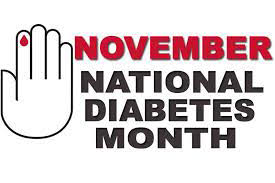THE CREDIT FOR CARING ACT:
What You Need to Know
Background: On May 17, 2017, this bi-partisan proposed bill introduced in the U.S. House and Senate called the Credit for Caring Act, (S.1151/H.R. 2505) would amend the Internal Revenue Code to create a federal, nonrefundable tax credit of up to $3,000 for family caregivers who work while also financially help and assist in caring for their parents, spouses, children with disabilities or other loved ones. Introduced by Senators Joni Ernst (R-IA), Michael Bennet (D-CO), Shelley Moore Capito (R-WV) and Elizabeth Warren (D-MA), and Representatives Tom Reed (R-NY) and Linda Sánchez (D-CA), this bill is an important step toward supporting caregivers that work while caring for family members. AARP and other national organizations have endorsed the Credit for Caring Act. This bill would help defray some of the costs to family caregivers, 78 percent of whom use their own money to assist with caring for a loved one, and help ensure that they can continue working.
Issue: Today, over 40 million Americans provide long term assistance and care for adult loved ones today. Unpaid caregiver costs are estimated to be valued at a staggering $470 billion dollars annually (more than total Medicaid spending in 2013). In addition, an estimated 3.7 million family caregivers provide care to a child younger than 18 with a medical, behavioral or other condition or disability, and 6.5 million family caregivers assist both adults and children. Family caregivers as-sist with necessary daily life functions, including bathing and dressing, preparing meals, manag-ing medications, driving to appointments, and managing finances. (Source: AARP 2016 Survey Report)
What will the Bill Do?
- The Bill would give eligible family caregivers the opportunity to receive a tax credit for 30 percent of the qualified expenses above $2,000 paid to help a loved one, up to a maximum credit amount of $3,000 if the caregiver meets the following criteria:
- Is a spouse, adult child, parent or another relation named under the “dependent” definition
- Helps a loved one, of any age, who meets certain functional or cognitive limitations or other requirements, as certified by a licensed health care practitioner
- May or may not live with the loved one
- Have more than $7,500 in earned income for the taxable year, and
- Can document qualified expenses.
- Index certain dollar amounts and income levels to inflation
- Coordinate with other existing tax provisions to prevent double dipping, and
- Phase out at higher income levels.
Status of the Bill:
This bill was referred to the House, Ways and Means Committee.
What You Can Do:
- Attend a Town Hall in your congressional district
- Contact Your U.S. Senator and House Representatives at www.senate.gov and www.house.gov
U.S. Capitol Switchboard (202) 224-3121.
You can download a copy of this article here: Credit for caring Act.pdf
OTHER NEWS
November is National Diabetes Awareness Month
November is National Diabetes Awareness Month, so now is the perfect time to educate yourself about the disease and learn what you can do to prevent type 2 diabetes or its complications. According to the National Institute of Health (NIH), you’re more likely to develop type 2 diabetes if you are 45 or older…
THE NATIONAL MUSEUM OF AFRICAN AMERICAN HISTORY AND CULTURE: CELEBRATING A PEOPLE’S JOURNEY
This February, as we observe Black History Month, The Black Women’s Agenda, Inc. gives special thanks for the National Museum of African American History and Culture (NMAAHC), which officially opened its doors September 24, 2016, on the national mall in Washington, DC.
KNOWLEDGE IS POWER!
The National Library of Medicine (NLM), one of the institutes of the National Institutes of Health, is the world’s largest medical library. NLM maintains and makes available a vast print collection and produces electronic information resources on a wide variety of topics. The Black Women’s Agenda, Inc. (BWA) and the National Library of Medicine are partnering to share valuable information about NLM’s resources with African-American women and their families.
© 2025 The Black Women’s Agenda, Inc. All Rights Reserved. Privacy Policy






